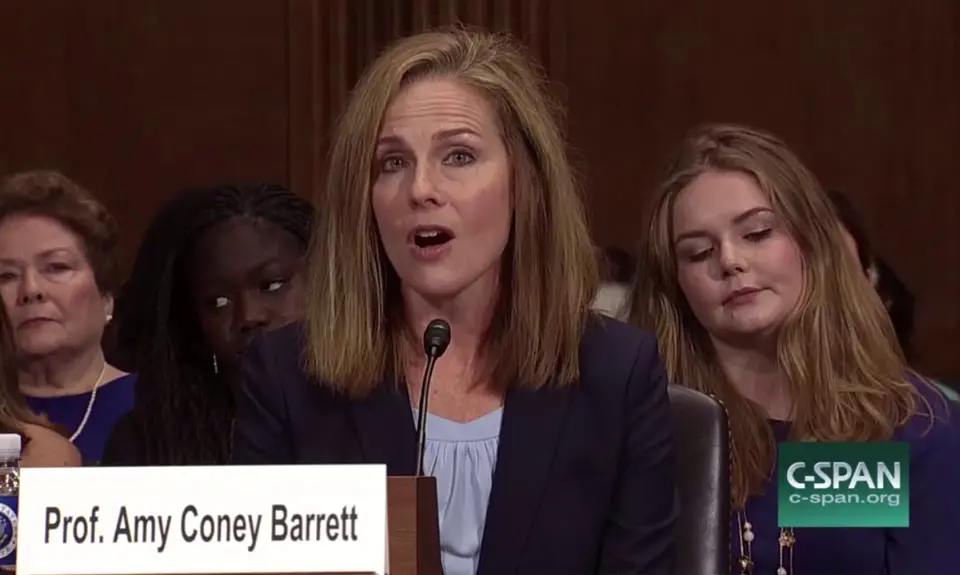This post was originally published on Medium.
Bigotry is a deadly reality in this country, something that many people deny even as its violent consequences are right before our eyes. We need to foster a greater willingness to acknowledge the ways that racial, ethnic, social and religious bigotries poison our minds, our public conversations and our communities. But that’s harder to do when people muddy the waters by falsely crying bigotry as a means of deflecting criticism or advancing a political goal.
Here’s a current example from Washington, D.C. Some conservatives are charging several Democratic senators with anti-religious and anti-Catholic bigotry over their questioning of Amy Coney Barrett, who has been nominated by the president to be a federal appeals court judge. What’s really going on here?
Barrett, a law professor, had written an article exploring the potential challenges that a Catholic judge might face when dealing with conflicts between the Church’s moral teachings and a judge’s duty to uphold the law on issues like the death penalty and women’s access to abortion. This is exactly the kind of issue that should be explored during a confirmation hearing. But when senators asked her about that article, and about how she personally would handle such potential conflicts as a judge, conservative religious groups portrayed the questions themselves as a form of persecution.
Some have even accused Democrats of hanging a “Catholics Need Not Apply” sign on the federal courts. Never mind that one of the senators involved is himself Catholic, or that a bigger percentage of congressional Democrats than Republicans are Catholic.
There’s a history to be considered. Many of the same religious leaders who have been eager to mobilize white evangelical Christians in support of conservative causes and politicians have cried “persecution” whenever their intentions or actions are criticized.
I will be honest that it bothers me as a Christian that the most intense defenders of our current president are those who claim the mantle of Christian leadership. They have shown themselves willing to ignore, excuse, or explain away the countless ways this president has played to people’s bigotry and inflamed racial, religious and ethnic tensions in this country. So I’m just a bit skeptical when they rush to portray themselves as victims of religious bigotry.
There are other issues to consider. Republican senators refused to even consider many of President Barack Obama’s judicial nominees. One of them was Myra Selby, the first African American and first woman to serve on the state Supreme Court of Indiana. She is widely respected — a law partner who served as chair of the court’s Commission on Race and Gender, which seeks ways to make the legal system more fair for all people.
Senate Republicans did not extend that fairness to Myra Selby. Instead they blocked Selby’s nomination and held open the seat to which Amy Coney Barrett has now been nominated, part of Trump’s effort to fill federal courts with judges who meet the standards of right-wing groups like the Heritage Foundation. If that group sounds familiar, it is because the Heritage Foundation is also a driving force behind the presidential commission that has been convened to justify state voter suppression laws. Those laws are designed to limit voting participation by people of color, another form of systemic injustice that the president and his supporters are seeking to make even less just.
I’m a preacher. I obviously don’t think a fellow Christian’s faith should be held against them. But I also don’t want it to be cynically used to distract us from important questions about the future of our courts, and whether we will be able to count on them to uphold justice for all people. Keep the questions coming.
